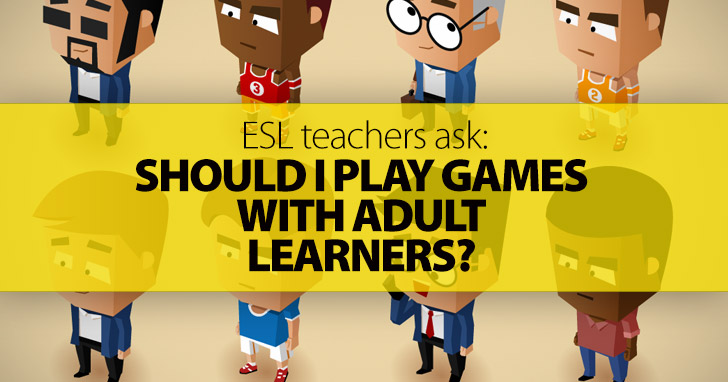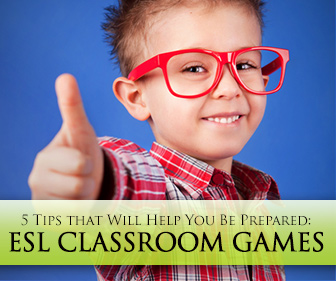ESL Teachers Ask: Should I Play Games with Adult Learners?


Isn’t that why we play games in the first place? Because we like them, right? In the classroom, games are a great way to practice just about anything. With games, we can work on vocabulary, grammar, or even reinforce classroom behavior. They make our lessons more dynamic, interesting and of course, entertaining. Games are also an amazing way to include more tasks that involve critical thinking, and they are amazing for convincing kids to do activities they may not enjoy as much otherwise. It all sounds super so far but, as in everything we do, games require planning and above all preparation.

What game to choose can be an issue if you don’t consider certain things ahead of time. Here are some questions you might want to ask yourself. Is this game age appropriate? Is it level appropriate? Is it too time consuming? Will they get too rowdy or will it calm them down? Is it too simple or too complicated? Remember, some games work well with certain age groups, levels and type of group and others just don’t. A typical mistake when choosing is to consider only the content of the game but remember, you know your young learners better than anyone, so think about them when making your choice.
Since most of us learn by doing, the best way to see what a game is like is to try ourselves first. That’s right, play the game by yourself or with a friend/colleague. Very often when we play it first, we realize the rules are not clear or are incomplete. Maybe you thought the game was right for your kids but after playing it, your opinion changes. What happens most of the time is that teachers become aware that an adjustment needs to be made. In any case, by playing the game by yourself or with fellow teachers ahead of time, you’ll feel better about using it with your kids.
It might seem like a silly question to ask yourself but believe me, it is necessary. If you don’t, you might lose sight of what that game is for. Games are useful for lots of stuff and some teachers just choose to use games for fun. Fun is ok, but keep in mind you can use games to your advantage to practice. Ask yourself, what do I want my students to learn to do with this game, what’s the objective? Are you using it to practice vocabulary or grammar? Let’s say you found a game that can be used to practice vocabulary related to food. In class you practiced certain foods but the game has words they haven’t learned yet. Make sure to adapt it to your specific needs. The game has to have a clear goal, after all, isn’t that why you are using it?
Game can range from very simple to very complicated and detailed. In any case, there are things you are going to need, like a game board, rules, cards, play money, pawns etc. Some games can be acquired and include everything you’ll need. However, most of the games we use in class come from books or websites that give us awesome ideas but don’t provide all the necessary elements. Here we have to gather everything ourselves. If you adapted the game to suit you specific needs, make sure to include the elements you decided to change.
When we teach young learners, managing their levels of energy is crucial. There are games that will calm them down because they require more focus, while others energize them. Again planning is everything. Sometimes after a disaster strikes, either because they are falling asleep in the middle of the game or out of control, we put the blame on the game. We dismiss the incident thinking it was just wrong for our kids, but often the problem lies in timing. A game as well as any other activity needs to be considered ahead of time. See how you can incorporate it into your lesson plan and try to visualize it. If it is an energizing game, maybe it would be better at the beginning of the lesson where students feel sluggish. If the students are energetic when the lesson starts, playing it at the end is better. Basically it all depends on your group.
Don’t be afraid to play games. Just remember to be prepared and as Dr. Seuss says “It’s fun to have fun but you have to know how”.